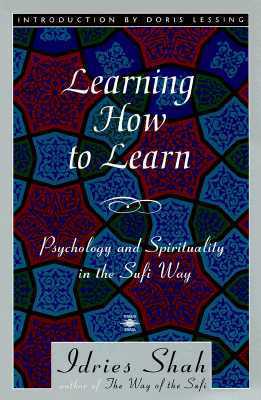
The Sufis
Book Description
Unlock the timeless secrets of a mystical path where wisdom dances with the absurd. "The Sufis" plunges into the heart of a transformative journey, exploring ancient teachings that defy convention and unravel the layers of the human experience. Through captivating parables and profound insights, this book reveals the hidden connections between love, longing, and enlightenment. Each page invites an awakening, challenging perceptions and igniting the spark of curiosity within. Will you dare to embrace the enigmatic wisdom of the Sufis and discover the truths that lie just beneath the surface of everyday life?
Quick Book Summary
"The Sufis" by Idries Shah offers readers an illuminating introduction to Sufism—a mystical branch of Islam focused on inner transformation, direct experience, and hidden wisdom. Through a unique blend of historical accounts, philosophical discourse, whimsical anecdotes, and insightful parables, Shah unveils the depth and breadth of Sufi traditions. Rather than presenting Sufism as a rigid doctrine, Shah explores its subtle methods of teaching, which aim to awaken and disrupt ingrained modes of thought. He emphasizes that Sufi wisdom permeates many cultures and philosophies, influencing everything from European literature to modern psychology. The book invites readers to approach the Sufi path with humility and curiosity, urging them to move beyond surface appearances and conventional logic to access deeper levels of perception and understanding.
Summary of Key Ideas
Table of Contents
Layers of Hidden Knowledge and Teaching
Idries Shah begins by exploring the foundation of Sufi practice, noting that it is not centered on outward rituals but on direct experiential knowledge—what Sufis call the 'inner path.' He describes how Sufi teachings are embedded in stories, jokes, and parables, rather than explicit instructions. These teaching stories serve as subtle tools to bypass conventional reasoning, gently guiding seekers toward profound self-awareness and awakening. Shah demonstrates that Sufism's transformative processes are accessible to anyone willing to question assumptions and remain receptive to wisdom delivered in unconventional forms.
Transformation Through Paradox and Absurdity
Much of the book centers on the use of paradox, humor, and the seemingly irrational as a means of stirring intellectual and spiritual growth. Shah delves into how Sufi teachers use absurdity and contradiction to break down rigid thinking and habitual responses. By drawing readers into unusual stories and thought experiments, the book encourages embracing confusion as a prelude to deeper learning. This method distinguishes Sufism from dogmatic religious systems and forms the heart of its philosophy—transcending duality through direct, lived experience rather than abstract theorizing.
The Influence of Sufism on Global Culture
Another key theme is the subtle but far-reaching influence of Sufi ideas across cultures and throughout history. Shah tracks Sufi motifs and methods from the East into Western culture, showing their presence in medieval troubadour poetry, Renaissance thought, and even the works of Chaucer and Shakespeare. He suggests that many Western mystical, literary, and philosophical traditions owe unacknowledged debts to Sufi sources, revealing concealed channels of cultural exchange. This theme not only broadens the reader’s understanding of Sufism but also reframes familiar figures and ideas in a new context.
Reorienting Perception and Consciousness
Shah repeatedly challenges readers to reexamine how they perceive reality. Sufi techniques, he asserts, are designed to disrupt automatic patterns of thought and perception, encouraging a shift from surface-level interpretation to deeper insight. The book argues that conventional education limits the capacity for true understanding, whereas Sufi methods cultivate intuition, self-reflection, and a sense of wonder. This process requires letting go of certainty, embracing ambiguity, and allowing new patterns of awareness to emerge.
Ultimately, "The Sufis" is both a guide and a provocation. It does not offer easy answers or linear progress but instead opens a labyrinth of meanings, questions, and challenges. Shah invites the reader to become a participant in the Sufi quest for knowledge—one that leads not to abstract enlightenment, but to an ongoing transformation of mind and spirit. Through its eclectic stories and penetrating analysis, the book encourages an attitude of playful seriousness—and in so doing, opens the door to wisdom that lies just beyond the edges of ordinary understanding.
Download This Summary
Get a free PDF of this summary instantly — no email required.





